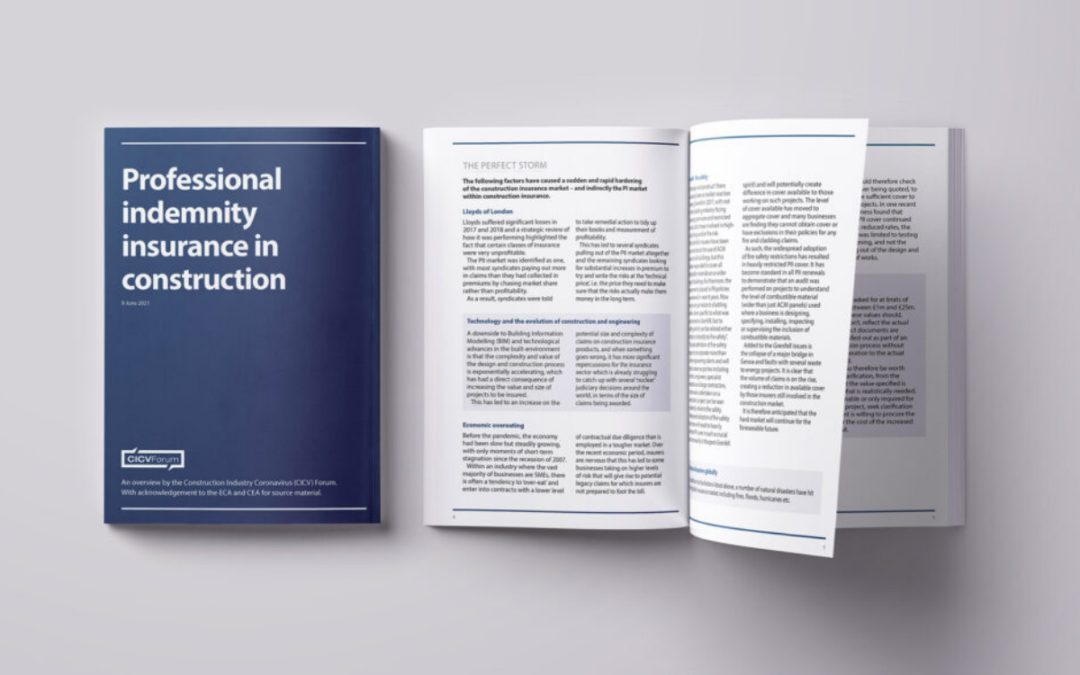
Professional indemnity insurance restrictions continue to harm industry
No easing of professional indemnity insurance restrictions, finds second CLC survey.
Limited availability of professional indemnity insurance (PII) and costly premiums are continuing to harm construction businesses and limiting the ability of firms to work on building safety remediation, according to the second annual survey from the Construction Leadership Council’s PII Group. The cross-industry survey revealed no real easing in the PII cover available to the profession since the group carried out its first survey a year ago. The 2022 survey, which received 652 responses, found that although high-rise residential work represents just 5% or less of workload for two thirds of firms, many are still suffering from increased premiums and excess levels, coupled with wide-ranging exclusions on cover. The CLC PII Group is particularly concerned that the situation is having a disproportionate effect on the ability of SMEs to take on work where cover for fire safety is required, to pay their premiums and to meet their claim excess in the event of a claim.
The results revealed:
• Nearly in one in five (17%) respondents are paying more than 5% of their turnover for their annual premium. One in twenty (5%) are paying more than 10% of their turnover for their premium, which is unsustainable for smaller businesses.
• Nearly a quarter (22%) of respondents are still unable to buy the cover they want or need (a slight improvement on 29% in 2021).
• Nearly seven out of ten respondents (68%) had restrictions on cover for fire safety (the same as 2021)
• A quarter (24%) have lost jobs as a result of inadequate PI insurance (compared with 31% in 2021).
• Three out of ten respondents (30%) have changed the nature of their work due to inadequate PII (compared with 29% in 2021).
• More than four in ten (42%) said that the experience of buying PII was significantly worse than their last renewal.
• A third (33%) of respondents have been declined insurance by three insurers or more, an improvement on 2021 (44%).
• Slightly more respondents have secured a claim excess that is 2% or less of their turnover (67% compared to 64% last year).
• Just over one in ten (12%) has an excess that is 21% of their turnover or more compared to 4% of respondents last year.
• There has been a slight improvement in the amount of cover available for “any one claim” rather than “in the aggregate” (64% compared to 60% last year).
Samantha Peat, managing director, Wren Managers and chair of the CLC PII Group, said:
“The market conditions for PII cover remain extremely tough for construction firms, particularly SMEs, and in the light of energy price rises and materials inflation, these are worrying times. The CLC PII Group will continue to work with Government and insurers to try and ease the situation.”
To download the full findings click here.
Members experiencing challenges secturing insurance or with questiosn about level of cover should contact FIS on 0121 707 0077 or email info@thefis.org and we can refer you to our specialist advisors.




